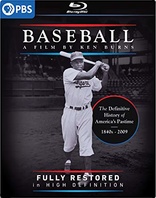本站提供 蓝光Blu-ray/HDTV 720P/1080P/2160P/4K 蓝光原盘 电影电视,硬盘代拷贝
代拷贝收费标准:例如:1TB硬盘(实际可拷贝930G)=100元,1.5TB硬盘(实际可拷贝1396GB)=150元,2TB硬盘(实际可拷贝1862GB)=200元,3TB硬盘(实际可拷贝2792GB)=300元。本站也有全新拷满自选片源硬盘出售。 网盘下载1G=0.2元,50G起。使用的网盘:115网盘 联系方式: 阿里旺旺:  淘宝店铺:http://94hd.taobao.com 淘宝店铺:http://94hd.taobao.com |
|
| ||
|---|---|---|
| 英文片名 | Baseball | |
| 中文片名 | 棒球全史 (1994) | |
| 类型 | 纪录, 历史, 运动 | |
| 地区 | 美国 | |
| 文件大小 | 360.41 GB, 蓝光原盘 1080p | |
| 文件格式 | BDMV/AVC | |
| 音轨 | 英语 DTS-HDMA 5.1 | |
| 字幕 | 英文 | |
| IMDB评分 | 9.2 | |
 ◎译 名 棒球全史 / 棒球风云 ◎片 名 Baseball ◎年 代 1994 ◎产 地 美国 ◎类 别 纪录片 ◎语 言 English ◎上映日期 1994-09-18 ◎豆瓣链接 https://movie.douban.com/subject/1498559/ ◎导 演 肯·伯恩斯 / Ken Burns ◎演 员 大卫·卡罗素 / David Caruso Thomas P. 'Tip' O'Neill Thomas P. 'Tip' O'Neill 艾德·哈里斯 / Ed Harris 艾丹·奎因 / Aidan Quinn Monte Irvin Monte Irvin Milt Gaston Milt Gaston M·埃梅特·沃尔什 / M. Emmet Walsh Willie Morris Willie Morris John Hartford John Hartford Charles S. 'Chub' Feeney Charles S. 'Chub' Feeney 朱丽·哈里斯 / Julie Harris Tom Wicker Tom Wicker 斯蒂芬·金 / Stephen King Slick Surratt Slick Surratt Shirley Povich Shirley Povich Bill Rigney Bill Rigney Birdie Tebbets Birdie Tebbets Jesse Jackson Jesse Jackson Bill Lee Bill Lee Al Lewis Al Lewis Marvin Miller Marvin Miller Jimmie Reese Jimmie Reese Thomas Boswell Thomas Boswell Mickey Mantle Mickey Mantle 拉塔尼娅·理查德森 / LaTanya Richardson 汉克·亚伦 / Hank Aaron 约翰·贝拉迪诺 / John Beradino ◎编 剧 肯·伯恩斯 / Ken Burns ◎制 片 人 肯·伯恩斯 / Ken Burns ◎摄 影 肯·伯恩斯 / Ken Burns ◎简 介 Inning One, Our Game, looks at the origins of baseball in the 1840s and takes the story up to 1900. Burns refutes the myth that Abner Doubleday invented baseball in Cooperstown and traces its roots instead to the earliest days of the nation — there are records of a game called "Base" played at Valley Forge. Inning Two, Something Like a War, takes viewers through 1910 and introduces some of the game's most celebrated and colorful characters, including Ty Cobb, Honus Wagner, Christy Mathewson and Walter Johnson. Inning Three, The Faith of Fifty Million People, examines the century's second decade, which was dominated by the Black Sox scandal. George Herman "Babe" Ruth makes his first major league appearance (as a member of the Boston Red Sox) and a wave of immigration helps fill the stands with new fans, eager to "become American" by learning America's game. Inning Four, A National Heirloom, concentrates on Babe Ruth, whose phenomenal performance thrilled the nation throughout the 1920s and rescued the game from the scandal of the previous decade. Inning Five, Shadow Ball, tells the story of the Negro Leagues in the 1930s. The title refers to a common pre-game feature in which the players staged a mock game with an imaginary ball. Though unintended, the pantomime was an apt metaphor for the exclusion of blacks from major league play at that time. Inning Six, The National Pastime, covers the 1940s and includes Joe DiMaggio's celebrated hitting streak, the awe-inspiring performance of Ted Williams and what Burns calls "baseball's finest moment" — the debut of Jackie Robinson, who broke the color barrier as a member of the Brooklyn Dodgers in 1947. Inning Seven, The Capital of Baseball, takes viewers through the 1950s when New York City had three successful baseball teams and dominated the World Series. By the end of the decade, the Giants and Dodgers had left New York, a signal that the old game was changed forever. Inning Eight, A Whole New Ball Game, moves the field to the 1960s. This episode traces the emergence of television, the expansion to new cities and the building of anonymous multipurpose stadiums that robbed the game of its intimacy and some of its urban following. Inning Nine, Home, looks at baseball from the 1970s to the present, including the establishment of the free agent system, the rise in player salaries, the continued expansion, the dilution of talent, the ongoing battles between labor and management and the scandals. | ||